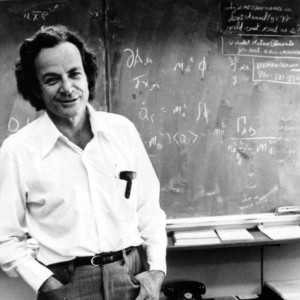“The most difficult subjects can be explained to the most slow-witted man if he has not formed an idea of them already; but the simplest thing cannot be made clear to the most intelligent man if he is firmly persuaded that he knows already, without a shadow of doubt, what is laid before him”
Leo Tolstoy

Now, I know what you are thinking. How could anyone in his/her right mind question the validity of Evidence-Based Medicine? It is common sense, isn’t it? It is rational! it’s like motherhood and apple pie! How could anyone question the precept of using scientific evidence to justify clinical decisions in medicine? How could we practice medicine otherwise? How else can we explain the advances in medical care over the past 100 years?
These are very reasonable responses. These are just the sorts of things which people might say when the standard dogma is questioned. And they are just the sorts of things which would raise the antennae of the great 20th century physicist, Richard Feynman. For those who don’t know, Richard Feynman was a a brilliant, iconoclastic, and rebellious physicist, who was awarded the Nobel Prize in Physics in 1965. Among his many attributes, he was a great sceptic and constantly questioned accepted dogma. And so it is in the spirit of Feynman that I ask you to set aside your initial reservations and consider the possibility that the dogma of EBM is just that: dogma. I would ask you to consider the possibility that maybe we can’t really measure what we purport to measure in medicine, that the manner in which research and evidence inform clinical decision-making is not as straight-forward as we might initially think, and that perhaps our improvements in medical treatment are not because of EBM, but rather in spite of it.
Before you decide, however, that this critique of Evidence-Based Medicine is misguided and ill-conceived, Take the Test and see if you might find this website illuminating.